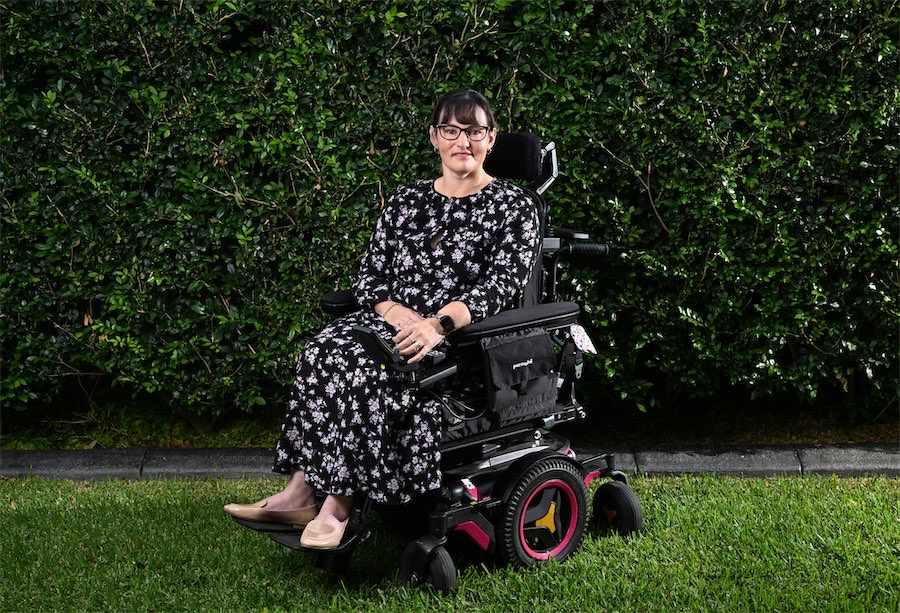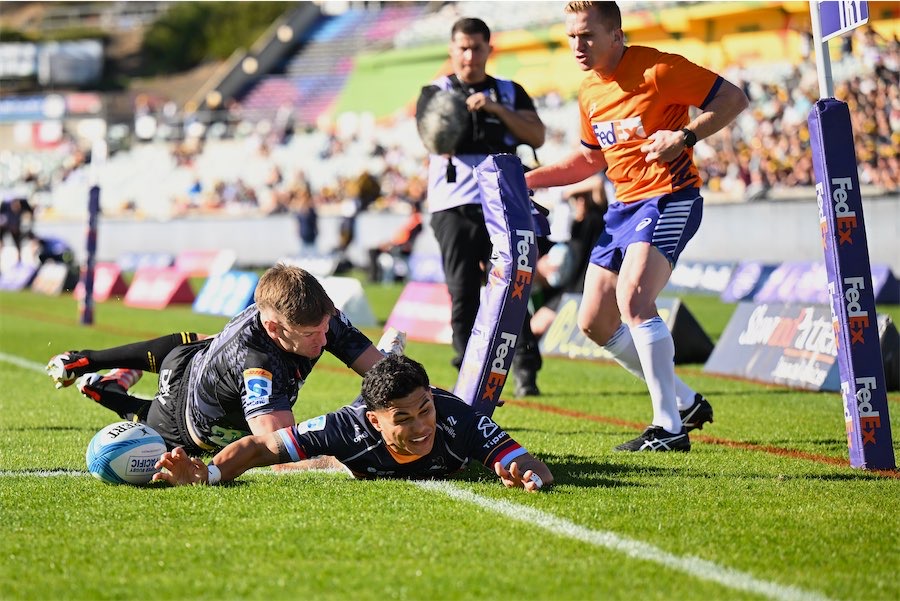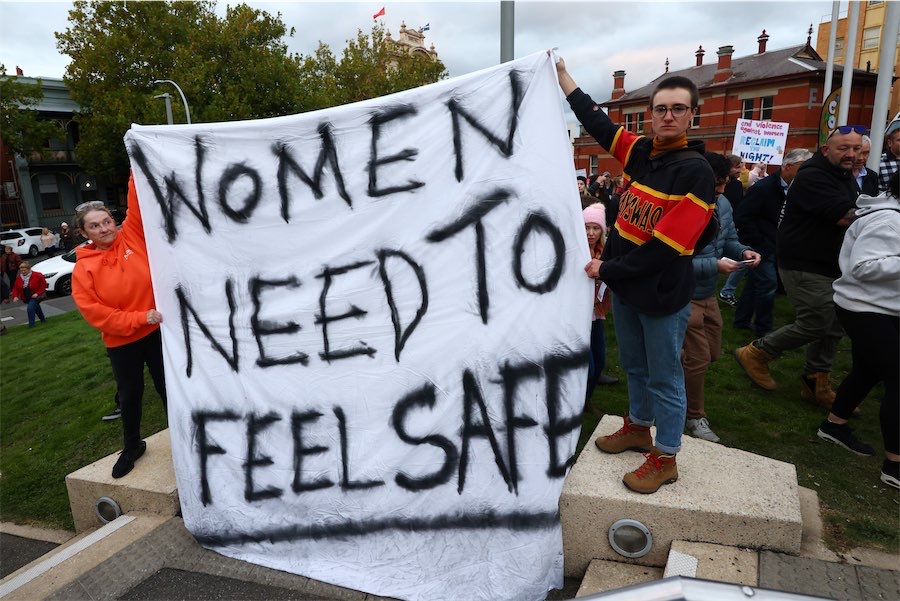
By Dominic Giannini in Canberra
Preparing to board a flight with her motorised wheelchair like she had months before, Emma Weatherley was told it couldn’t be transported.
The 43-year-old has Facioscaplohumeral Dystrophy or FSHD, a cruel and degenerative disease that results in a person’s muscles wasting away.
Diagnosed at 28 and wheelchair-bound for the past decade, the mother of two bought a motorised model featuring aircraft-approved specifications and special flight mode.
But on February 29, Virgin staff wouldn’t allow it on board the Link Airways-operated flight, saying the 190kg chair exceeded the plane’s 120kg weight limit.
The FSHD Global Research Foundation managing director is a regular traveller. She says her mobility information is stored in the airline’s system and there was no weight limit advertised anywhere.
However, Virgin Australia told her in a letter allowing her wheelchair on the previous flight was a mistake by a staff member who didn’t check the aircraft type when checking her in and other procedural errors were made.
The issues had been resolved after an investigation and there would be further training for team members involved, the airline said.
“Virgin Australia takes its responsibilities to support guests travelling with specific needs, including mobility assistance, extremely seriously. We have sincerely apologised to Ms Weatherley for her experience,” a Virgin spokesperson said.
“We are working both internally and with Link Airways to find a way forward on this issue and will continue to keep Ms Weatherley updated as we seek to improve our service and processes.”
The cost of the initial flight has been refunded.
Ms Weatherley says the system discriminates against people with a disability, with no flights able to take her from Canberra to Sydney.
She instead has to be rerouted through another city like Melbourne at her own cost.
There is no reason she can’t travel independently but her confidence has been shattered and she now fears being stranded at an airport if flights are delayed or cancelled or if she is unexpectedly diverted again, she said.
Airline staff are often unaware of the procedures in place for those travelling with a wheelchair, leaving her to walk them through internal processes at the check-in desk, which makes flying even harder.
“How do people who don’t travel a lot cope with that?” Ms Weatherley said.
Extra flights, a night’s accommodation due to the lack of availability of planes that can take the chair, and the time costs are all worn by the disability advocate.
“A lot of people with disabilities just can’t afford to travel by air,” she said.
Ms Weatherley is also calling for financial penalties for transport services that fail to provide adequate accessibility support, saying the cost of discrimination complaints is often factored into their business models.
“The balance of power is really skewed because providers and operators have legal teams at their disposal,” she said.
General accessibility is also a large problem in the community.
During the COVID-19 pandemic, Ms Weatherley spent hours on the floor of a bathroom at a former job after slipping on water because no toilet could accommodate her chair and no one was around to help her.
The fall resulted in a dislocated hip and shoulder, requiring surgery.
A lack of awareness about FSHD including from her doctors and medical professionals, had resulted in people falling through the cracks, she said.
“There was no support groups for FSHD, no one had ever heard of it before, you’d go to visit doctors and they’d be Googling it in front of you because they didn’t know what the condition was.
“I lived in those gaps, I fell through the gaps myself, so I’m trying to block them up.”
Ms Weatherley is calling on the government to fund her organisation to support new treatments and trials.
More than 500 diagnosed patients will be trial-ready in the next four months, enough to sustain multiple clinical trials in Australia.
The foundation’s pre-budget submission called for $500,000 over two years to also help fund an information support line and more face-to-face community meetings.
Who can be trusted?
In a world of spin and confusion, there’s never been a more important time to support independent journalism in Canberra.
If you trust our work online and want to enforce the power of independent voices, I invite you to make a small contribution.
Every dollar of support is invested back into our journalism to help keep citynews.com.au strong and free.
Thank you,
Ian Meikle, editor





Leave a Reply